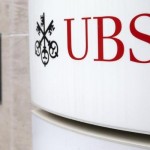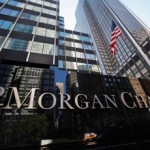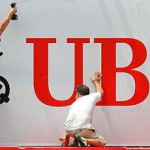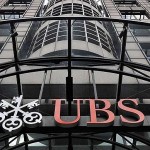UBS Faces a New Tax-Evasion Probe
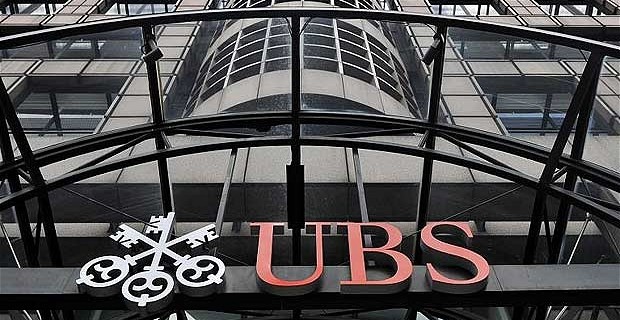
Authorities Investigate Whether Swiss Bank’s Clients Used ‘Bearer Securities’ to Hide Cash
Federal prosecutors have launched a new probe into whether Swiss bank UBS AG helped Americans evade taxes through investments largely banned in the U.S., according to people familiar with the investigation.
UBS, which paid $780 million in 2009 to settle a separate Justice Department tax-evasion probe, is in the cross hairs again for allegedly helping wealthy clients hide assets, this time through so-called bearer securities. These securities, which were largely phased out of the U.S. financial system beginning in 1982 because of their potential use in tax evasion and money laundering, function essentially like cash, allowing whoever holds the certificate to anonymously claim its value.
Prosecutors in the U.S. attorney’s office in Brooklyn are weighing evidence gathered with the Federal Bureau of Investigation to determine whether employees of the bank helped facilitate tax evasion or engaged in securities fraud, people familiar with the investigation said. Authorities are also trying to determine whether anyone at the bank engaged in criminal efforts to cover up the alleged conduct once it became more widely known about within the bank.
UBS was recently served with a subpoena from authorities related to the matter, according to people familiar with the case. Prosecutors and FBI agents recently traveled to London to interview potential witnesses, the people said.
A Justice Department spokeswoman declined to comment.
A spokesman for UBS declined to comment. UBS recently hired attorney John F. Savarese, a partner at Wachtell, Lipton, Rosen & Katz, to conduct an internal investigation, according to the people familiar with the case. Such probes can cost banks millions of dollars in legal fees. Mr. Savarese didn’t respond to requests for comment.
The alleged practices under scrutiny at UBS hark back to an old-fashioned type of tax evasion. At issue is the marketing of bearer securities as an investment to American clients, a financial tool whose use U.S. authorities largely ended because of its potential for abuse. Bearer securities were once popular because they were preferable to bulk cash payments, but a 1982 law imposed a variety of sanctions and tax penalties that made it very difficult to use or deposit such a certificate at a U.S. bank.
Traditionally, bearer securities were issued in one of two ways. Bearer bonds, also known as coupon bonds, can be issued by banks as debt certificates in large denominations, sometimes millions of dollars each, that can be redeemed at certain banks by whoever possesses them. Some banks and other companies issue bearer shares, an equity share in a company, which is similarly owned by whoever holds it. Companies issuing bearer securities typically don’t register the securities’ owners or track transfers of ownership.
Bearer securities can be a risky investment, because they are easily transferable and nearly anonymous, which means they can be stolen and cashed. For that reason, they have been used to cheat on taxes. By keeping an interest-bearing account or document with no ownership trail, and no forms filed to the IRS, the holder of such a certificate can hide assets and income from tax authorities. Today, bearer bonds can also be maintained strictly as an electronic account, generating a set rate of interest.
It isn’t clear when the alleged conduct in the UBS matter is purported to have begun. Investigators believe some potential misdeeds occurred after the expiration of bank’s 2009 agreement with the Justice Department, which resolved its previous tax-evasion case and put off any related prosecution as long as the bank didn’t get into additional trouble in the following 18 months. The people familiar with the current probe said authorities don’t believe the new issues constitute a violation of the terms of that settlement.
UBS’s woes stem from more than simply potentially marketing such investments to American clients or managing them, according to people familiar with the investigation. At one point, these people said, bank employees allegedly discussed how to deal with the potential legal problems of such transactions, and how they might hide them from authorities. For that reason, investigators are trying to determine the exact nature of those alleged discussions and whether they amounted to a criminal effort to conceal what had allegedly already been done.
Separately, the bank is one of several global firms probed by U.S. and European authorities for its alleged role in the manipulation of foreign-exchange markets. In November, the bank paid about $800 million to settle that case with European agencies and one American regulator. The bank didn’t dispute the regulators’ findings. The U.S. Justice Department has said it is still investigating the matter.
The new UBS investigation is part of a long-running effort by the U.S. to crack down both on wealthy Americans who use offshore means to evade the Internal Revenue Service and the banks that facilitate the evasion. Last year, Credit Suisse Group AG agreed to pay $2.6 billion and pleaded guilty to a conspiracy charge over having helped Americans evade taxes.
Amid the U.S. crackdown, dozens of Americans were convicted of crimes related to hiding money from tax authorities. Thousands of other Americans who held such accounts negotiated with the IRS to pay fines in order to avoid larger penalties or jail time.
UBS played a central role in kicking off a U.S. crackdown that has caused significant upheaval in the Swiss financial sector. As a result of its 2009 settlement, which required the bank to disclose names of U.S. clients, the Swiss Parliament passed a measure enabling the country’s biggest bank to hand over clients’ identities to American authorities without violating Switzerland’s bank-secrecy laws.
About a dozen Swiss banks remain under Justice Department investigation, according to people familiar with those cases. Dozens of others have signed on for a program letting banks report secret accounts held by Americans, an effort widely seen in Switzerland as a signal that the yearslong legal dragnet is drawing to a close. Now, the fresh probe of UBS threatens to upend that notion.
Even as the bearer securities were phased out of U.S. banking, they continued to capture the American imagination, appearing in fiction, movies and con-artist schemes. The protagonist in the 1925 novel “The Great Gatsby’’ schemes to sell bearer bonds. In the 1984 film “Beverly Hills Cop,’’ bearer bonds are a central plot point, and in the 1988 movie “Die Hard,’’ criminals take over an office building in order to steal bearer bonds.
Source: wsj – UBS Faces a New Tax-Evasion Probe









